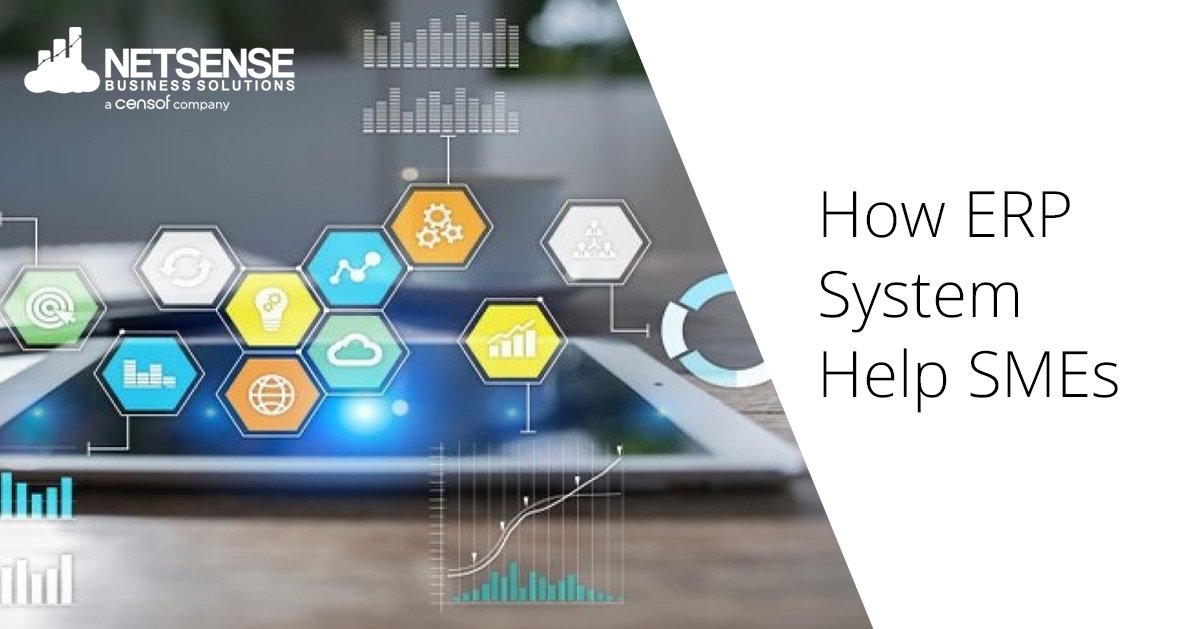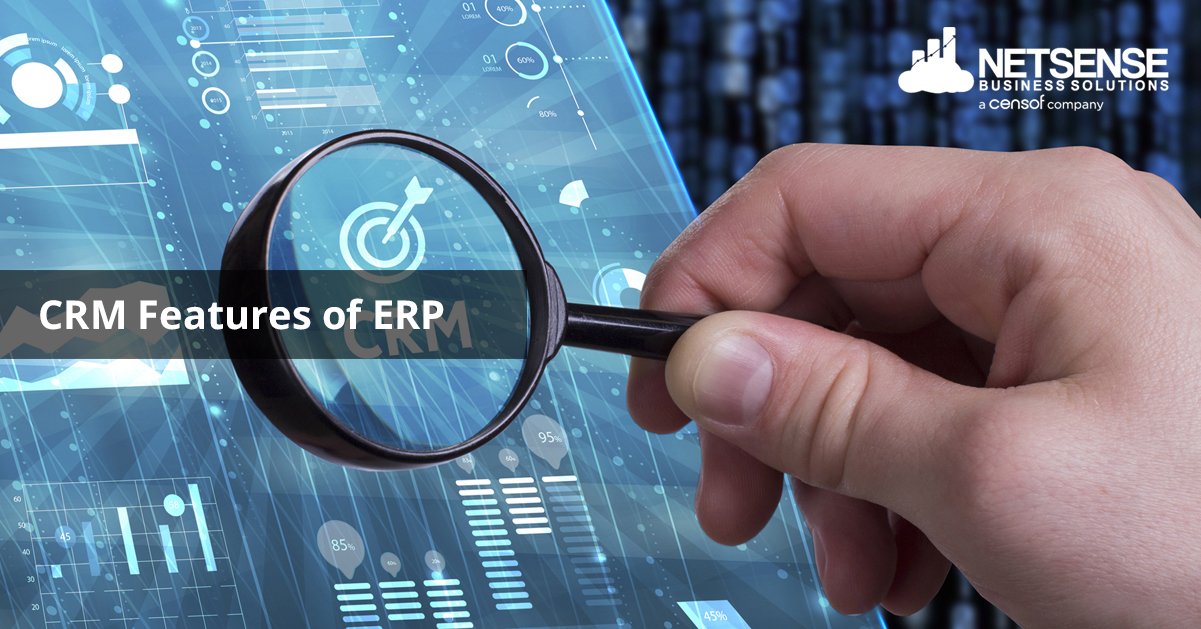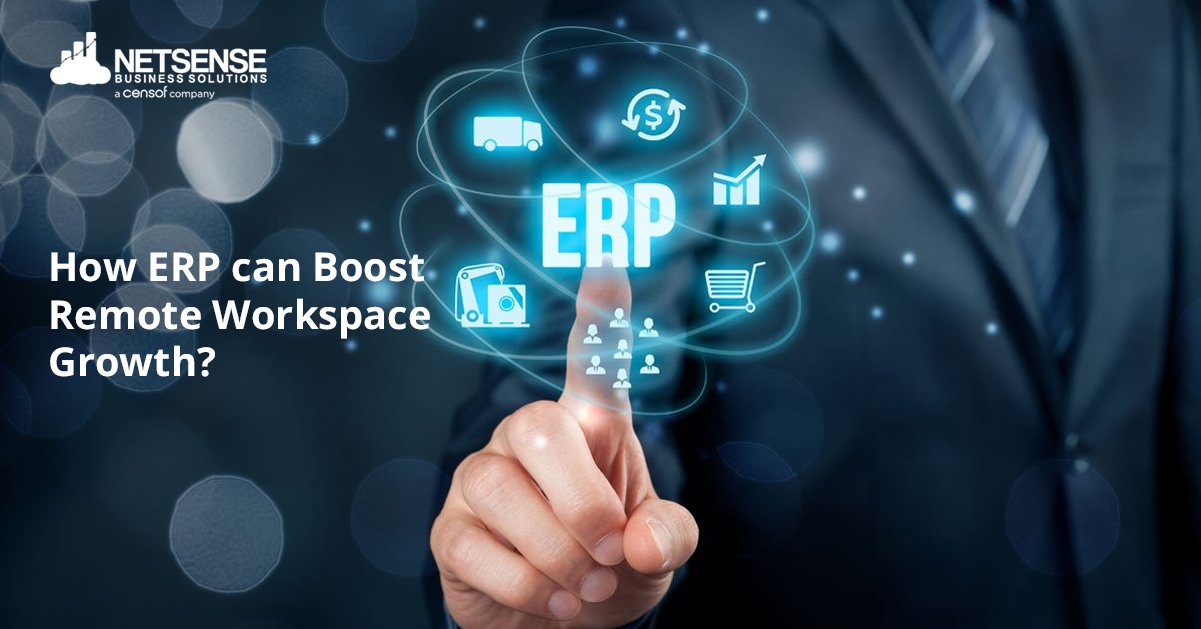The path of business success is packed with plenty of rewards and potential pitfalls. According to the Oxford Economics survey, 64% of Small and Medium Enterprises (SMEs) are leveraging technology to outperform their peers, everything from mobile-friendly software to cloud computing. This means, if you don’t take the necessary steps to stay ahead of the competition, you will lose a big piece of cake. It is challenging to find a way to attain actionable insights and beat your competitors. In order to add value to your business, you can implement an advanced Enterprise Resource Planning (ERP) system to manage and automate a variety of operations across all departments with more accuracy and real-time updates. Let’s take a closer look at what ERP system exactly is and how it can help small businesses to grow to understand whether or not it is a valuable investment. What is ERP Software?Enterprise Resource Planning (ERP) system is designed across a single, well-defined data structure that can help organisations to manage day-to-day operations such as accounting, inventory management, production, project management, risk management, and supply chain workflows. It is a full-fledged software that can help to forecast, plan, budget, and report on a company’s financial results. You can integrate it with a spectrum of business processes and enable the flow of information between them. It accumulates transactional data from various sources, which eradicates data duplication and ensures data integrity with a single source of truth. How ERP System Ensures Better Performance and Results?The ERP system is equipped with manufacturing and planning modules that offer optimum support to a range of operations from start to finish. SMEs generally experience funding restrictions and lack of technical support, but honestly, these reasons were valid back then, but not any longer. Thanks to the latest technological advancements, there are many practical solutions available more than ever. Here are some advantages of implementing an ERP system: Simplify Workflow and VisibilityManaging multiple worksites took a lot of effort and time. Moreover, if there was an issue with one of the contractors, it was so frustrating to make endless calls and site visits. Luckily, the ERP system can transform workflow visibility. Users can simply operate a common database from ERP to get regular real-time updates about production, distribution, and sales. Business Intelligence and Data AnalyticsERP system uses Business Intelligence (BI) tools to offer data collection, analytics, and reporting sources. Users can also evaluate data in real-time and use historical data to make necessary changes to the production runs easily. Scheduling SolutionsWhen workers are assigned tasks in shifts, or when inventory is ready to be delivered and when your warehouses undergo maintenance, scheduling tools in ERP software could be very helpful. It allows effective collaboration among the workforce so that all the members and supply chain partners can stay on the same page. Quick Decision MakingIf you want to keep up with competitors and satisfy more and more customers, you cannot make delays in your deliveries. Fast decision-making is a paramount factor and that’s where ERP system comes into play. With real-time information, decreased errors, and streamlined operations, decisions can be made quickly without any disruptions and obstacles. Risk Management and Data SecurityPreventing your private information from fraudulent practices could be a big challenge. ERP comes with real-time risk management tools that perform automated audits and monitors frauds for additional data security. A single ERP system keeps all your crucial documentation and interactions in one place. Take Advantage of ERP Capabilities Now!As a multitude of enterprise data and workflows are integrated into Enterprise Resource Planning (ERP) system, SMEs can align separate departments smoothly, resulting in substantial bottom-line savings and improved business insights. With ERP delivered as a standalone or integrated solution in the cloud, your business will be future-ready and overtake change. If you’re having a hard time managing your business processes and would like to know more about ERP software, get in touch with our experts today. We’d love to point you in the right direction.
SuperOffice statistics reveal that Customer Relationship Management (CRM) adoption and usage has increased in 2018 to 74% and breaks down further with 91% of companies. This is why, more and more companies are using CRM software to manage customer relations and operations like marketing, customer services, and sales in a structured manner. The improper handling of customer data could adversely affect your business efficiencies in terms of decision-making, sales, and purchasing processes. In order to combat such issues, incorporating the Customer Relationship Management (CRM) module into Enterprise Resource Planning (ERP) system could be a feasible option to generate real-time information across all departments. ERP allows you to simplify business processes, deliver quality products, and enhance your service levels, leading to more satisfied customers and overall growth. But before making a decision, you should know what CRM exactly is, why you need it, and how ERP and CRM fit perfectly together.Let’s dive in. What is CRM?CRM stands for Customer Relationship Management which is designed to organise, automate, and synchronise major aspects of business workflows. It utilises data analysis of customers’ history to enhance business relations, in particular, focuses on customer retention and sales growth. Administrators don’t need to check on scattered spreadsheets for leads and opportunities anymore as CRM enables them to handle prospects and customers from a single system. Pros of CRM: It can help companies to stay organised and store all the customer-related information in one place. It streamlines sales processes, which means better productivity, leads, and ROI. It provides great customer support and interactions. It improves customer experience and can be coordinated through sales, production, and delivery process. How do CRM and ERP Make More Sense Together?Organisations need to maintain good customer relations to achieve success. Additionally, digital transformation and agile work are taken as a key component, putting customers at a priority within all activities. This generates absolute necessity to get a clear picture of customers’ perspective and manage all business processes through one system. A custom ERP system having a CRM function will help you keep records and customer interactions in one place. By having two systems incorporated, you will be more efficient and organised, enhancing your customers’ experience, reducing delays in delivery, and maximising profitability. From customer acquisition to cooperation among employees, processing of orders, and project management, businesses integrated with CRM and ERP in the cloud can expect improved efficiency at every level. Key Features of CRM Software Contact Management ToolsUsers can organise contacts by name, organisation, a number of explicit, and roles through CRM. It entails the list of content management tools such as custom tags, bulk edits, and more which can convert contacts into qualified leads. Lead ManagementCRM users can manage and monitor their leads with various tools designed for lead scoring, lead qualification, lead-specific notification, and segmentation. Workflow ManagementOrganisations can assign tasks to all departments and receive alerts on completed or upcoming tasks. The automated updates allow users to simplify business processes and manage the workload more effectively. ReportingCRM will analyse and deliver real-time reports regarding sales and satisfied customers, keeping consumers’ needs, sales force, and sales pipeline in alignment. ERP sphere has witnessed various computing trends in the past few years and is drastically changing the way businesses implement the enterprise system. Small and medium-sized enterprises can benefit from CRM and ERP, making the software easy to implement and increasing productivity across all departments. A fully integrated CRM with ERP will help to synchronise your sales team and track leads for better opportunities. Wish to manage your customer interactions and business workflows more effectively? Talk to us today!
With the coronavirus pandemic reeling all over the world, a shutdown has resulted and now many companies have adopted a remote work ecosystem to flatten the curve and ensure the safety of their workforce. While telecommuting has been around for years among certain U.S. workers, companies still lack a reliable remote work program that leads to communication breakdown, reporting delays, a decline in productivity, more cybersecurity risks, and much more. In order to ensure that your team members work productively from home, it is necessary to establish clear guidelines that must include daily working hours, task submission process, task updates, and so on. A cloud-based ERP (Enterprise Resource Planning) system can greatly help to facilitate all processes and departments within your company, including finance, sales, production, distribution, customer relations, and even HR departments from anywhere, anytime. ERP system ensures comprehensive work-from-home management that allows teams to work cohesively, even when they aren’t in a traditional office environment. For a completely distributed workforce, we’d like to share a few tips to help companies enhance the functionality of ERP in a remote environment. Empower Remote Work and Efficiency It is essential to ensure that everything from remote-work technologies to workflows and training should be in place. Up-to-date remote-work guidelines will help to improve workforce productivity and business continuity. In order to preserve efficiency, businesses should collaborate with internal and external resources within ERP software and then, train the workforce on new processes and security protocols. Choose Cloud-based ERP Over On-Premise Systems It is vital that key employees should be able to access ERP software via a web-based portal or VPN while making sure configurations for remote work be up to date and tested. Always opt for cloud-based ERP rather than the on-premise system as they are designed to work remotely, also provide immediate scalability and flexibility for potential business needs. Automate Business Processes Organisations should focus on automating manual business practices and workflows to enhance operational productivity in a remote work environment. Say ‘Goodbye’ to the scattered manual spreadsheets and go for ERP solution powered with Artificial Intelligence (AI) to automate multiple workflows such as order, invoice processing, reporting, shipping, warehouse operations, and forecasting. Anticipate Fluctuations in Accounting and Financial Filings Due to the devastating economic effect of COVID-19, companies need to prepare themselves for new accounting rules, balance sheets, and financial filings. ERP software allows businesses to create ledger, fixed asset management, and configure new reporting procedures and accounting policies. Enable Accounts Receivable Processes It could be daunting to connect with entities that have not paid their invoices or deposited the payments. ERP with accounts receivable (AR) modules can stabilise the cash flow and allow companies to send out dunning notes, identify ideal payment terms, and monitor payments. Moreover, focusing on improved communications with customers, offering benefits for early payments, and empowering payment hold may yield better AR outcomes. Streamline Remote Financial Closes The technological obstacles, disrupted systems, and unfamiliar procedures can add time and complications to financial closes. ERP comes with a set of tools and capabilities that can help to remotely monitor, manage, and consolidate close operations. How Acumatica and Netsense Allow Companies to Stay Connected When Working Remotely? In order to overcome challenges and bring great opportunities to the table, we highly suggest organisations stay connected even in the remote environment through online meetings, collaboration rules, and maintain strong connections with co-workers in different geographical locations. In an era of cloud ERP, we still see many SMEs running on ledgers, spreadsheets, and disconnected accounting system, which only results in redundant or inconsistent data. Make no mistake further, it’s time to opt for Acumatica cloud-based ERP solution to connect with your stakeholders, partners, employees, suppliers, and customers, regardless of the location. ERP system allow workforce to access accurate information in real-time, helping managers to delegate tasks to team members, further team members will give updates on milestones achieved, and you can track progress from anywhere. At Netsense, we strive to offer advanced Acumatica ERP system that will be highly transformative for all types and sizes of businesses, helping to meet your current and future business needs. If you’re all set to become a well-connected, agile, and take on the new challenges for better future profitability, Acumatica ERP software is a viable option for you. We’ve enriched countless businesses and would be glad to do the same for you. Feel free to reach out to our experts today!


